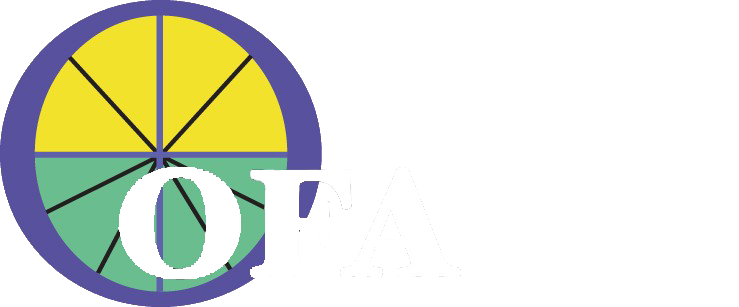March 10, 2018
For more information: Contact John Bobbe, OFARM executive director at 715.467.0031 or johnbobbe@email.com. Additional information about OFARM may be obtained from Oren Holle, OFARM president at oholle@bluevalley.net or 785.562.7500.
Organic grain farmer members of the Organic Farmers’ Agency for Relationship Marketing, Inc. (OFARM) from across the Midwest recently met with Betsy Rakola, Director, Compliance and Enforcement, USDA’s Agricultural Marketing Service National Organic Program (NOP) in LaCrosse, Wisconsin about fraudulent organic grain imports.
OFARM members, other organic grain and dairy farmers and others, Wisconsin Congressional and Senate representatives as well as Congresswoman Chellie Pingree, (ME), also an organic farmer discussed what needs to be done to protect organic integrity and achieve profitable price levels for U.S. producers. The U.S. imports about 70% of its organic soybean supply and 40% of organic corn. At least some of the organic grain imports, especially from Turkey, have been shown to be fraudulent. Depressed domestic organic corn and soybean prices have cost U.S. producers hundreds of millions of dollars in losses due to imports being used to depress prices.
USDA’s Betsy Rakola reviewed USDA’s NOP’s efforts on curbing organic grain import fraud.
Specifically organic farmers put forth several key recommendations to combat organic fraud.
Oren Holle, Kansas diversified organic grain and livestock farmer and OFARM president said, “AMS-NOP must continue to hold itself to the promised response actions and deadline proposed to the USDA’s Office of Inspector General (OIG) and to remedy the shortcomings identified.”
A September, 2017 USDA OIG report cited AMS’s NOP as “…unable to provide reasonable assurance that NOP required documents were reviewed at U.s ports of entry that imported agricultural products labeled as organic were from certified organic foreign farms and businesses that produce and sell organic products.” USDA agreed to correct 8 short-comings the OIG cited.
Holle went on to add, “NOP needs to put in place a process for identity and tracking of inbound organic cargo’s to identify origins where fraudulent activity is suspected. This information appears to be available with a limited expending of resources. NOP also needs to ensure that cargos that may have been rejected at points of loading, enroute, or arrival at other ports are not re-documented and shipped to the US markets which sources have claimed is the market of least resistance.”
Holle went on to add: “While we greatly appreciate the recent efforts and directives from NOP to the accredited certifiers to remind them of their obligations to protect organic integrity, it is also indicative of the need to follow up with additional scrutiny of the process, particularly directed to the oversite of areas which are most vulnerable to fraudulent activities.”
The farmers present also stressed that additional funding should be earmarked specifically for greater level of due diligence in enforcement of NOP requirements for organic imports. There must be an emphasis that if and when these resources become available that they are applied to correct the known deficiencies that currently exist including inter-agency cooperation with other agencies including Customs and Border Patrol and USDA’s Animal and Plant Health Inspection Service. There also needs to be more personnel that are adequately trained in fraud identification and stop shipment capabilities before these cargos enter the US supply chain.
OFARM is a farmer cooperative incorporated in the State of Minnesota. OFARM has five-member organic grain and livestock cooperatives with organic producers in 19 states from Montana to Texas and Louisiana, Ohio and Michigan and states in between.
###
In spite of only 28 comments supporting withdrawl of the proposed requirements for Livestock and poultry and 70,000 comments opposing it including OFARM, USDA went ahead and pulled the proposal permanently. An in-your-face to the organic community. Read their release below.
USDA Decides Not to Impose Additional Regulatory Requirements for Organic Producers and Handlers
WASHINGTON, March 12, 2018 — The U.S. Department of Agriculture (USDA) today announced the decision to withdraw the Organic Livestock and Poultry Practices (OLPP) final rule published on January 19, 2017. The rule would have increased federal regulation of livestock and poultry for certified organic producers and handlers. The withdrawal becomes effective May 13, 2018.
Significant policy and legal issues were identified after the rule published in January 2017. After careful review and two rounds of public comment, USDA has determined that the rule exceeds the Department’s statutory authority, and that the changes to the existing organic regulations could have a negative effect on voluntary participation in the National Organic Program, including real costs for producers and consumers.
“The existing robust organic livestock and poultry regulations are effective,” said USDA Marketing and Regulatory Program Undersecretary Greg Ibach. “The organic industry’s continued growth domestically and globally shows that consumers trust the current approach that balances consumer expectations and the needs of organic producers and handlers.”
According to USDA reports for 2017, the number of certified organic operations increased domestically by seven percent and globally by 11 percent. Industry estimates show that organic sales in the United States reached almost $47 billion in 2016, reflecting an increase of almost $3.7 billion since 2015.
The Department carefully considered public comments and the relative costs and benefits for both producers and consumers of imposing the proposed additional regulations.
More information on the OLPP final rule is available in the March 12, 2018, Federal Register, and on the USDA National Organic Program web page.
###
